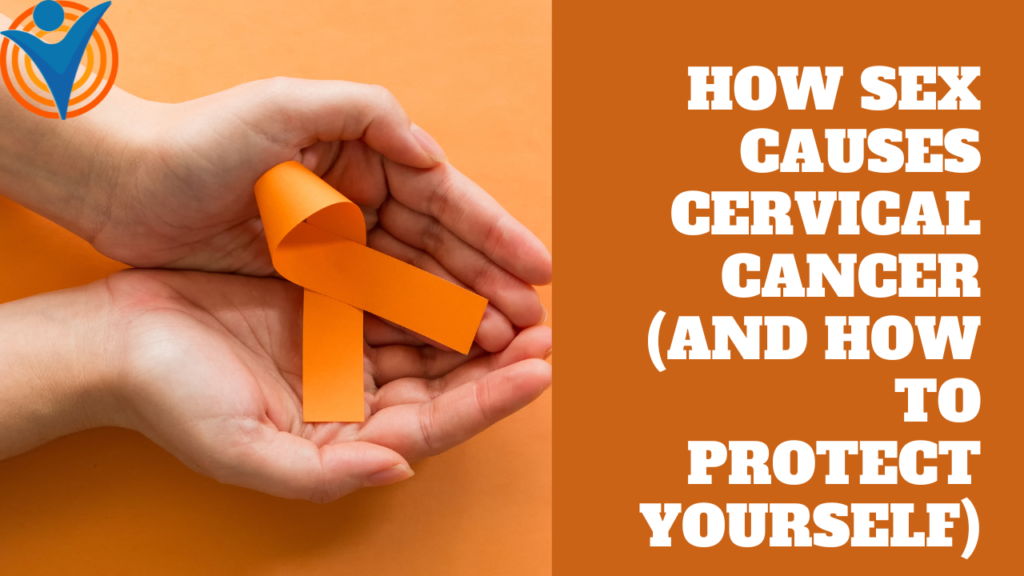Chances are high that you have heard of cervical cancer before.
But you may be unsure what it means or entails, and that’s why you need to keep reading.
First, What Is The Cervix?
The cervix is the part of a woman’s reproductive tract that connects the lower part of the uterus to the vagina. It is a vital component of the female reproductive tract, and it is also the site for the fourth most common cancer in women- Cervical cancer.

According to the World Health Organization, about 570,000 women were diagnosed with cervical cancer and over 300,000 women died from this disease in 2018.
What Causes Cervical Cancer?
The human papillomaviruses (HPV) is linked with most cases of cervical cancer. Although not all strains of HPV can lead to cervical cancer, some high-risk strains such as HPV 16 and 18 are culprits. Unfortunately, HPV is an extremely common virus that is transmitted through sexual contact. And at least, half of the sexually active people will carry HPV at some point in their lives, but a few will go on to develop cervical cancer. The greater number of sexual partners a woman has without the use of condoms, the greater her risk of coming in contact with HPV and of later developing cervical cancer.
Therefore, it is safe to say HPV infection is a sexually transmitted infection. Also, women who have had chlamydia infection are at an increased risk of developing cervical cancer because it encourages the growth of HPV.
Are you still at risk of cervical cancer without having sex?
YES!
How Sex Can Cause Cervical Cancer
HPV cells can live in other areas of the body asides from the genitals. Some examples include areas like the mouth, anus and throat. Also, it can be transmitted through oral sex, anal sex and skin to skin contact. So, penetrative sex is not the only way to contract the HPV infection. Some strains of HPV have also been said to cause some conditions such as genital warts and throat cancers.
If you are not having sex now, but you have had sex in the past, you are still at risk of developing cervical cancer. Because HPV can survive in the genital tract and persist in the body for years until it develops into abnormal cells on the cervix later. Although HPV is infectious, cervical cancer is not. So, your partner cannot get cervical cannot get cervical cancer from you.
How To Protect Yourself From Cervical Cancer
Reduce your exposure to risk factors.
The most effective way to prevent cervical cancer is to reduce your exposure to its risk factors. These include:
- Multiple sexual partners
- Early age at first intercourse
- Smoking and drinking alcohol.
- Get Screened
It is highly recommended that undergo pap smear screening if you are sexually active. A pap smear is a quick and non-invasive test that involves a health care professional collecting cells from your cervix.
In addition, the HPV test is also another important screening tool for cervical cancer. It allows the professional to identify the presence of HPV cells in your cervix. HPV test can be detected about a year after infection in the cervix.
Get vaccinated!
If you are not sexually active, you can get vaccinated and acquire protection from HPV.
Symptoms
Some of the symptoms that can be experienced by women who have this kind of cancer include:
- Vaginal bleeding (after intercourse, between periods and after menopause)
- Watery, bloody vaginal discharge that may be heavy and have a foul odour
- Pelvic pain or pain during sexual intercourse.
How Is It Treated?
Treatment for cervical cancer has some form of effect on your sex life. If you haven’t hit menopause, some treatment modalities (radiotherapy) could lead to a much earlier menopause. For some women, it is possible to remove the ovaries out of the area where they are receiving radiotherapy. Radiotherapy also causes some form of vaginal dryness. Also, treatments like a total hysterectomy for cervical cancer can reduce the length of the vagina thereby reducing sexual urge and pleasure in some women.
Visit a health professional at www.oncopadi.com today to talk about your risk factors and any fears you might have concerning your sex life.
You can book a screening for cervical cancer here.

